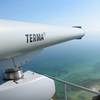On May 1, 2002, the House Armed Services Committee reported H.R. 4546 out of committee on a bipartisan 57 to 1 vote. The bill authorizes $383.4 billion for the “core” of the fiscal year 2003 defense program, fully funding the President’s non-war budget request.
The committee also began work on H.R. 4547, the Cost of War Against Terrorism Authorization Act, but agreed to complete consideration of the legislation at a later date. This second bill will contain the second portion of the President’s defense budget request – approximately $10 billion for items related to the cost of the war against terrorism.
This two-bill approach recognizes that America's military will face unprecedented and as yet undefined challenges in the war against terrorism. The unconventional nature of this military campaign requires that Congress accordingly adjust its traditional budget process to allow for greater flexibility in financing the significant costs of these operations.
Therefore, H.R. 4546 contains the base defense budget for fiscal year 2003 and largely covers the costs associated with the normal rate of investment and operations of the Department of Defense. H.R. 4547 covers the known costs of continuing Operations Noble Eagle and Enduring Freedom, as well as miscellaneous DOD incremental costs directly associated with the war on terrorism. This legislation will also serve as the vehicle for further authorization action once the Administration submits a detailed budget proposal for the $10 billion contingency fund identified in the budget request.
This approach implements the flexible budgeting proposal contained in both the President's budget request and the House-passed Concurrent Resolution on the Budget. Equally important, this two-bill effort will facilitate appropriate Congressional oversight of the entire proposed defense budget by ensuring regular-order consideration and action.
Although the following press release summarizes committee recommendations made to H.R. 4546, it also includes funding recommendations contained in H.R. 4547 for highlighted programs for which funds are included in both bills
In order to retain the technological edge in combat, the United States military must continually invest in new equipment and weapons. As such, the committee recommends $73.4 billion ($3.2 billion more than the President’s request) to procure weapons, ammunition, and equipment, while careful reprioritization of the budget enabled the committee to meet $2 billion of the service chiefs’ unfunded requirements.
In addition, maintaining the technological edge on future battlefields requires a commitment to the research and development of new technologies. As such, the committee supports the President’s research and development budget – which includes the most significant increase in more than 20 years – and recommends $56.5 billion ($649 million more than the President’s request) for research and development programs, including funds for ballistic missile defense programs (see “Protecting Americans from Ballistic Missile Attack” on page 4).
Sponsored Content
Safer Starts Here: Build Ships, Protect Crews

July 2025
 Read the Magazine
Read the Magazine

 Read the Magazine
Read the Magazine
This issue sponsored by:

Cracking the Code to Predict Underwater Radiated Noise
Subscribe for
Maritime Reporter E-News
Maritime Reporter E-News is the maritime industry's largest circulation and most authoritative ENews Service, delivered to your Email five times per week







